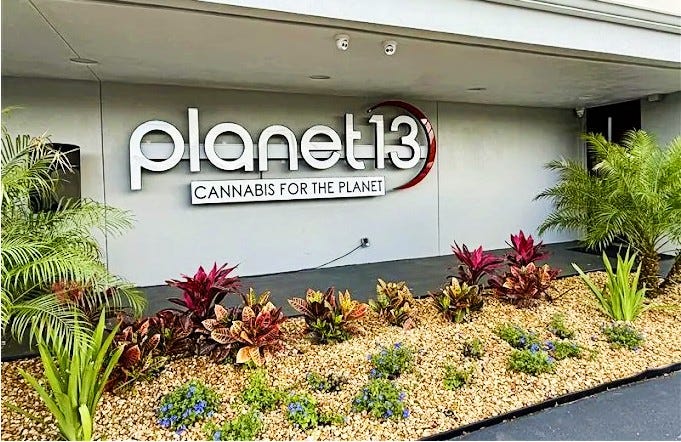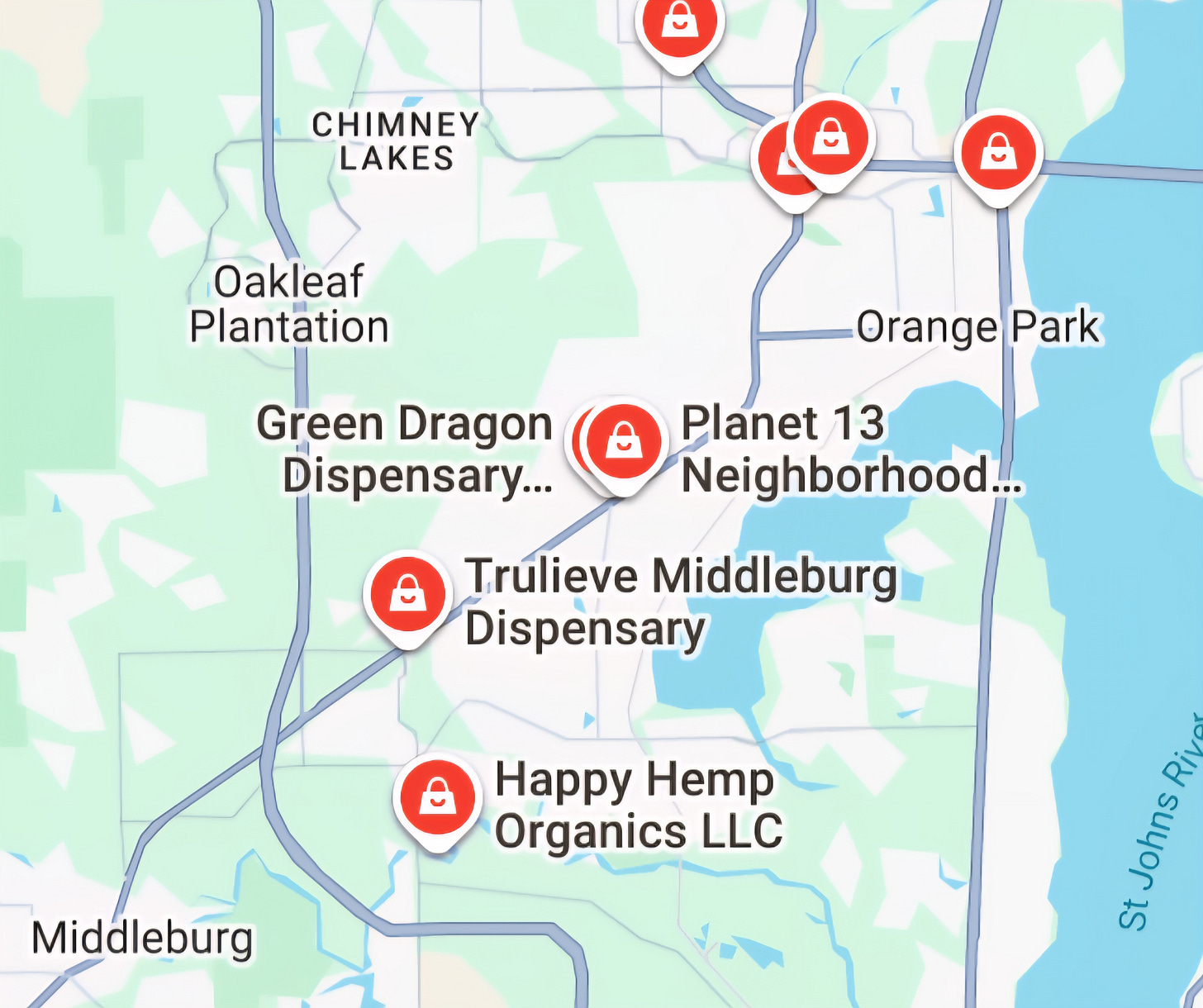Buzz Kill: New Federal Law Could 'Devastate' Florida Hemp Industry
2018 Loophole Allows Sale of THC Products
The author has covered politics and government in Florida for more than two decades, and now writes for the Florida Phoenix, which gave us permission to reprint his November 11 story here.
By MITCH PERRY
Florida’s multi-billion dollar hemp industry is in jeopardy of collapsing due to federal legislation approved by the U.S. Senate on Monday night, and both proponents and critics are only now grasping the significance of what is at stake.
As part of the “continuing resolution” to reopen the federal government, the Senate has passed a measure that, according to a Senate Appropriations Committee bill summary, “Prevents the unregulated sale of intoxicating hemp-based or hemp-derived products, including Delta-8, from being sold online, in gas stations, and corner stores, while preserving CBD and industrial hemp products.”
If approved by the House of Representatives later this week and then signed by the president, the measure would go into effect in 365 days.
“Everyone in the hemp industry knew the government would eventually close or tighten the loophole, but I think many felt that there would be some form of working with the industry to effectively regulate,” says Zack Kobrin, a Fort Lauderdale attorney with the firm of Saul Ewing who works in the hemp and cannabis industry.
“The reaction from many is that they are surprised it was such a sudden and sweeping measure. I think for those that are cowboys, they will just maximize on making as much as they can until they can’t. I think for those hemp operators that were trying to work with regulators and trying to follow the rules, this will be a real blow.”
‘Big Cannabis’
Carlos Hermida, who runs two hemp shops in the Tampa Bay area, alleges that the alcohol and cannabis industries were successful in getting Congress to enact the legislation.
“It’s abundantly clear that the American Distilled Spirits Alliance, Beer Institute, Distilled Spirits Council of the U.S., Wine America, and Wine Institute — Big Alcohol combined with Big Cannabis, such as Trulieve & Curaleaf — have spent ridiculous amounts of money on lobbying to put tens of thousands of small business owners like myself out of the hemp industry for their own bottom line,” he said in a text message.
“The most un-American thing about all of this is the move towards total market control by a few rather than competition. Money in politics is destroying every aspect of commerce.”
“Recriminalizing hemp products would harm the very people this industry was built to serve, veterans, seniors, and everyday Americans seeking safe, plant-based wellness options,” says Patrick Shatzer, the regulatory affairs senior manager with Sunmed/Your CBD Store. “However, we view the one-year transition period as an opportunity for collaboration. Sunmed stands ready to work alongside policymakers to create balanced, science-based regulations that ensure consumer safety without dismantling the hemp industry.”
Total sales from hemp businesses in Florida run in the billions of dollars, according to a 2023 analysis from Whitney Economics. That report said the industry employs approximately 104,000 workers earning in excess of $3.6 billion in annual wages.
That’s led in part to a growing rivalry between the hemp and cannabis industries in Florida that was exposed last year, after members of the hemp industry contributed financially to groups working to defeat a proposed constitutional amendment that would have legalized recreational cannabis in the state. A request for comment from Trulieve, the state’s biggest medical cannabis operator, was not returned.
When news of the proposal surfaced last month, Cornbread Hemp co-founder Jim Higdon urged Florida’s congressional delegation to defend Florida’s hemp economy.
“Florida’s hemp market supports thousands of jobs, from growers to beverage distributors,” he said in a press release on Oct. 6. “Banning hemp products would devastate that progress. We ask Florida’s congressional delegation to protect this legitimate, regulated industry that Floridians overwhelmingly support.”
Florida lawmakers passed a measure during the 2024 legislative session that would have banned the sale of Delta-8 and imposed regulations on other intoxicating hemp-derived products, a measure described by Kobrin at the time as “a massive blow to the industry.”
However, it was vetoed by Gov. Ron DeSantis.
Anti-drug organizations in Florida are hailing the vote in the U.S. Senate.
“I’m extremely excited that they’re closing the loophole, because this has been going on since 2018 when the farm bill was first passed and left this gaping loophole where these products came in under the radar, and they’re proliferating in gas stations, smoke shops, convenience stores, and now I’m seeing in Circle K, specifically the THC beverages,” says Ellen Snelling with the Hillsborough County Anti-Drug Alliance.
“They’re everywhere, and I feel like they’re trying to normalize this hemp-THC, all because of a loophole.”
Snelling remains concerned, though, because if even the measure is signed into law by President Trump, it won’t take effect for another year.
“That’s a long time, because we’re still seeing children and adults going to the emergency room after ingesting these products, so I would like to see the state address it because even though they have some regulations in Florida, I don’t think they’re strong enough, because I’m still seeing very high-THC products in gas stations and convenience stores,” she said.
While Florida has not restricted hemp-derived THC products, Delta-8 THC has been banned in 17 states and severely restricted in seven more, according to the National Cannabis Industry Association.
The Legislature returned to Tallahassee earlier this year to once again tackle the issue. Speaker of the House Daniel Perez created a “combined workgroup” on hemp consisting of 24 members from two separate committees chaired by Rep. Michelle Salzman, R-Escambia County, that convened during the first week of the 2025 legislative session.
Members concluded after meeting three times that they did not want to pass any legislation that would kill what has become a billion-dollar-plus industry in the state, but they also agreed they needed to implement more regulations on the product.
However, unlike the 2024 session, they failed to produce any final bill for consideration, as there were significant differences between the House and Senate versions.
A State Bill in 2026?
Salzman weighed in on the federal legislation Tuesday.
“I’m encouraged to see the Senate include hemp-related language as this bill moves to the U.S. House,” Salzman wrote on X. “My focus has always been on commonsense safeguards that protect Americans while supporting responsible industry. This is another step in that ongoing conversation, and I look forward to continued collaboration as the process moves forward.”
The Florida Department of Agriculture and Consumer Services has conducted inspections of hemp retailers and manufacturers across the state this year to ensure compliance with child-protection standards for hemp products. A spokesperson for the agency declined to comment on the pending federal legislation.
Last month, 38 attorneys general from both political parties sent a letter to the Senate and House appropriation chairs calling on Congress to clarify the 2018 U.S. farm bill’s definition of hemp “to ensure intoxicating THC products are taken off the market.”
Florida Attorney General James Uthmeier was not among them.
Kentucky U.S. Republican Sen. Rand Paul filed an amendment Monday to the continuing resolution package that would have stripped the hemp language, but it failed on a 76-24 vote.




Good. Get rid of it! It smells terrible and is worse than cigarettes on causing cancer and lung issues. GET RID OF IT.
The overweight black woman at the Clay County Administration building is always half asleep. Slumped over and head down trying to get people to sign a petition to legalize it. Disgusting. One day I saw her almost fall off her chair she was so out of it.